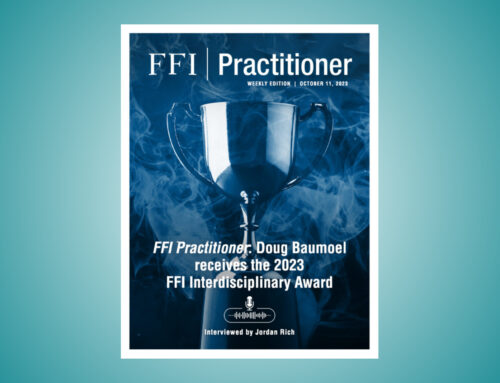The Hidden Perils—and Potential— of Shared Family-Owned Real Estate
By Paul Faxon and Blair Trippe
Managing Unique Challenges for Future Success
Real estate can be the driver of a wonderful family business, but it can also be a slow-motion train wreck for families that neglect to manage their shared enterprise and their relationships well.
Many enterprising families have at least some real estate within their portfolio, often because opportunities to buy real estate evolved as part of the family’s operating company over generations. Many families whose real estate ownership began as extensions of other family business activity don’t identify as being “in the real estate business.” Sometimes that means they do not actively manage those assets as well as they could.
Other families start their family business in real estate or chose to sell another type of business to proactively diversify into real estate investment, management, and/or development. These families typically are more strategic in their approach and are more focused on actively managing and growing these assets.
No matter how a family may have entered into the business of real estate, those who hold real estate as a significant or core holding face different challenges than do other types of enterprising families.
Success Can Be Misleading
Unlike manufacturing firms, in which the bottom line is clear and financial returns are a reliable and timely indicator of performance, the economics of real estate are less self-evident. In a rising real estate market, little entrepreneurial activity is needed to grow value. Often, legacy properties were purchased long ago for very little money, so if these properties are achieving some cash flow, it is easy for the current generation to feel successful and secure by doing very little.
In reality, the value of these properties may be lagging behind those in the region that are more aggressively managed. Even worse, under-developed properties may not be keeping up with highest and best use, becoming less competitive in attracting tenants than surrounding properties. They may fall behind in needed (and expensive) maintenance and repair, putting them at economic risk. All of these circumstances can eventually trigger family conflict.
Poor Performance Can Hide in Plain Sight
A real estate business can go through a period of time in which the business is failing to perform well, but no one notices. It can also be a deceivingly risky business to transfer to future generations without proper planning and preparation of heirs.
Consider a scenario in which parents transfer ownership of their specialty auto parts manufacturing business to their children, two of whom work in the business. If the next generation leaders are not competent and vigilant, the impact on the business quickly becomes hard to ignore. The business will likely be overtaken by their competition. Their family members who are not working in the business will see their distributions dwindle, likely sparking tension among the stakeholders. They will either address the issues, realize they need to sell their firm, or devolve into conflict— and it will happen quickly.
Compare that to a real estate business scenario in which siblings or cousins inherit 300 apartments in five buildings plus several professional office buildings, with little debt on the properties. The siblings can take their eye off the ball for a time while rents still come in and property management is adequate. While they may not get the return they should, it doesn’t raise concern. They slowly get a reputation for not quite having it together; they might slowly lose personnel and see a decline in the business, but it doesn’t rise to the level of crisis. The other shareholders may not know what they really own or how to evaluate whether or not their company is being well managed.
“This type of decline is like an iceberg,” shares Continuity Senior Consultant and real estate expert Paul Faxon. “You won’t see the problems right away, but it will be a disaster if you miss the signs. It can be a slow-motion train wreck that keeps families from feeling they need to do long-term planning.”
A Forgiving Market Doesn’t Fuel the Entrepreneurial Fire
It can be a challenge for inheritors of real estate to maintain entrepreneurial drive and vigilance, because the market is forgiving. Because performance metrics are less obvious and urgent than in operating companies, family feuds over real estate are common when these signs begin to emerge.
“Managing real estate is an ongoing but slow-motion process,” says Blair Trippe, managing partner at Continuity Family Business Consulting. “It’s an ocean liner, not a speed boat. Failure to actively manage it and do long-term planning can be disastrous. You cannot make a quick correction.”
Failure to plan well and to effectively manage conflict can be just as devastating in real estate families as in other types of family business. What differentiates the threat in real estate families is that it can really sneak up on you.
“Working with advisors who can evaluate current threats to the business and help all stakeholders rally around a set of innovative solutions can have enormous impact on a family,” shares Continuity Founding Partner Doug Baumoel. “The goal is for families to understand the potential of their assets and to determine what is needed to effectively manage them. That’s what families need to know to work together to successfully transition real estate through generations, while building value and preserving lasting relationships.”
For a deeper dive into this topic, download our family-owned real estate white paper.
Hoping for a smooth transition to next generation leaders? Read more about succession planning.
Stay in the Know
Get our latest articles, tips, and insights delivered straight to your inbox.
Share this Insight, choose your platform!
About Us
Continuity Family Business Consulting is a leading advisory firm for enterprising families. Using a full suite of service capabilities, we help families prevent and manage the single greatest threat to family and business continuity: conflict. It is through this lens that we advise our clients and build customized strategies for succession planning, corporate governance, family governance, and more. We help families improve decision making, maximize potential and achieve continuity. To inquire, contact us.












